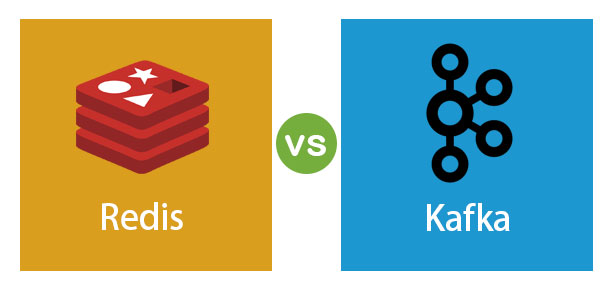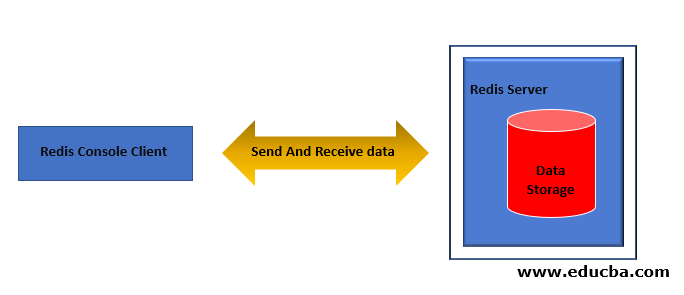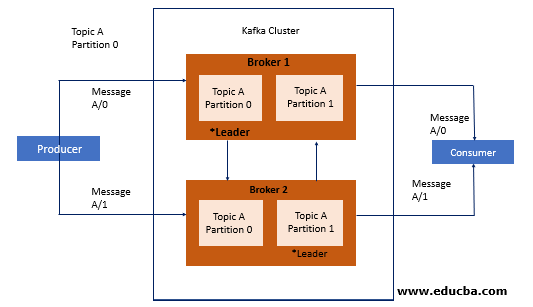Updated March 23, 2023
Difference Between Redis and Kafka
In this post, we shall look at the top differences and performance between Redis vs Kafka.
Redis: Redis is an in-memory, key-value data store which is also open source. It is extremely fast one can use it for caching session management, high-performance database and a message broker. In terms of storage and multiple functionalities, Redis is a bit different from Kafka.
Apache Kafka: Apache Kafka is a messaging system that allows you to publish and subscribe to streams of messages that are based on topics and partition. In this way, it is similar to products such as ActiveMQ, RabbitMQ. But even with these similarities, Kafka has a range of fundamental differences from traditional messaging systems that make it different completely.
What is Redis?
Redis is an acronym for the Remote Dictionary Server. It is a key-value store, this key-value store can be used as a repository for reading and writing data. Redis is a No-SQL database, which means that unlike MySQL, or Oracle database, it does not have structures such as table/row/column/functions/ procedures, etc. and also it does not support commands like SELECT, INSERT, DELETE and UPDATE. Strings, hashes, lists, sets and sorted sets are the different data structures provided by Redis.
There are two main processes in Redis architecture: Redis client and Redis server
Redis clients and servers can be present on the same computer or on two different computers. Use a client/server interface to communicate with Redis.
- Redis Server: Redis server is responsible for storing data in memory. This manages all manner of operations and forms the architecture’s main part.
- Redis Client: Redis client may be the Redis console interface or the Redis API of any other programming language which sends data to the Redis server.
What is Kafka?
Kafka is a publish-subscribe messaging system. With streaming technologies such as Kafka, you can actually process new data as it is generated in your cluster, you might save it to HDFS, or you can save it to HBase or some other database, so you can actually process it in real-time as it comes in, you can do all that with streaming.
- Producers: Producer publishes a message to a topic.
- Broker: Broker is a cluster made up of one or more servers in Kafka. The broker receives messages from the producer, assigns them to offset and commits the message.
- Topics: Messages are divided into topics. Topics are broken down into a number of partitions where they index and store messages that receive an incremental Id named offset.
- Consumers: Consumers subscribe to various topics and read data from brokers. They read data in consumer groups. The consumer always keeps track of which messages it has consumed by keeping track of the offset of messages.
Head to Head comparison between Redis and Kafka (Infographics)
Below are the top 7 differences between Redis vs Kafka
Key Differences Between Redis and Kafka
Let us discuss some of the major key differences between Redis vs Kafka
1. Origin
- Redis: It was developed by Salvatore Sanfilippo for developing a real-time weblog
- Apache Kafka: Kafka is an open-source software platform developed by LinkedIn.
2. Subscription
- Redis: Redis supports push-based delivery of messages that means messages published to Redis will be delivered automatically to subscribers immediately.
- Apache Kafka: Kafka supports pull-based delivery of messages, meaning that messages published in Kafka are never distributed directly to consumers, consumers subscribe to topics and ask for messages when consumers are ready to deal with them.
3. Parallelism
- Redis: Redis does not support the concept of parallelism.
- Apache Kafka: Kafka supports parallelism due to the log partitioning of data where multiple consumers consume in consumer groups at the same.
4. Message Retention
- Redis: Redis sends the messages to the consumer all at once and later the message is removed. Thus, no one knows where the data is held.
- Apache Kafka: Because Kafka is a log, there are always messages; you can monitor this by setting a retention policy for messages. E.g. 7 days retention
5. Speed
- Redis: If speed is of a concern than use Redis as messages are not persisted by Redis, so it delivers them more quickly.
- Apache Kafka: Even after it delivers the message, Kafka persists the messages, so it is quite slow compared to Redis.
6. Amount of Data
- Redis: Redis is an in-memory store. It ensures that it uses its primary memory for storage and processing which makes it much faster than the disk-based Kafka. The only issue with Redis ‘ in-memory storage is that we cannot store large amounts of data for a long time. Because the primary in-memory is smaller than a disk
- Apache Kafka: Kafka is meant to handle large amounts of data. It allows as many servers as required to be used. It uses a disk to for its storage, so it may be slow to load. Nevertheless, it can hold a large amount of data (i.e. in terabytes) for a longer retention period thanks to the disk storage ability.
7. Use cases
- Redis: It is used for various use cases such as Session Cache, Full Page Cache (FPC), Leader Boards/Counting, Pub s/ Sub, Queues
- Apache Kafka: Kafka has various use cases such as Messaging, Website Activity Tracking, Log Aggregation, Stream Processing, Metrics, Event Sourcing, Commit log.
Redis vs Kafka Comparison Table
Let’s discuss the top comparison between Redis vs Kafka
| Comparison Points | Redis |
Kafka |
| Origin | To develop real-time weblog analyzer by Salvatore Sanfilippo | Started at LinkedIn |
| Parallelism | Doesn’t support parallelism | Supports parallelism due to log partitioning of data |
| Message Retention | It does not retain data. | Can retain data for a longer period of time |
| Subscription | Push Based Subscription | Pull Based Subscription |
| Category | In-Memory Database | Message Queue |
| Speed | Faster | Not as fast as Redis |
| Amount of Data | Amount of data is less as compared with Kafka | It is meant to deal with a huge amount of data |
Conclusion
Redis is used if you want to deliver messages instantly to the consumer and you can live up with data loss, and the amount of data to deal is less. Kafka can be used when you’re looking for reliability, high throughput, fault-tolerant, and volume of data is huge.
Recommended Articles
This has been a guide to Redis vs Kafka. Here we discuss key differences with infographics and comparison table. You may also have a look at the following articles to learn more –
- RabbitMQ vs Kafka | Top Differences
- Learn to Top Differences of RabbitMQ vs MQTT
- Guide to Top 10 Redis Alternatives
- RabbitMQ vs Redis | Top 9 Differences
- Guide to Difference between RabbitMQ vs SQS
- Top Differences of Hazelcast vs Redis
- Redis vs Memcached | Top Differences
- Redis vs MongoDB | Top 7 Differences






